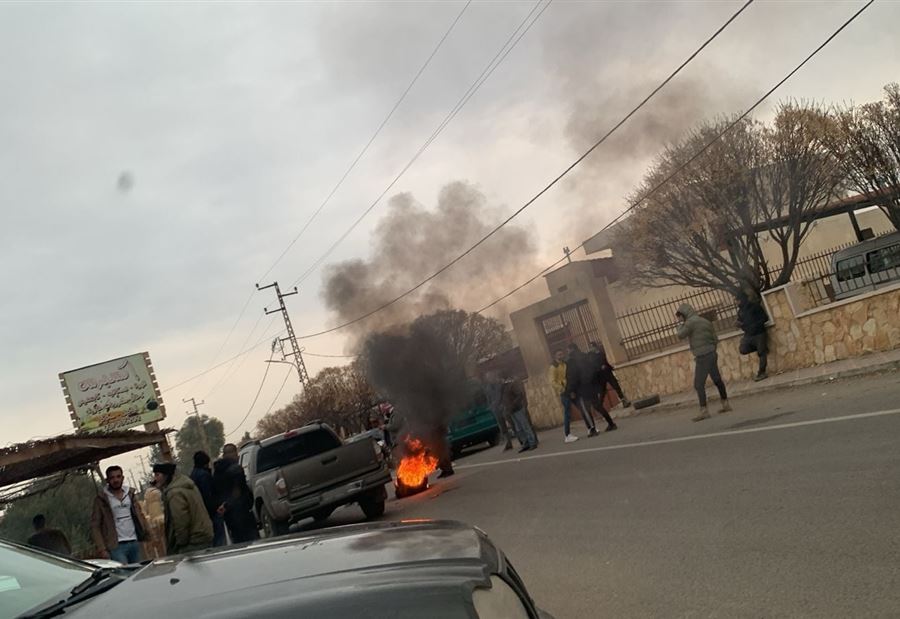The situation on the Lebanon-Syria border remains tense. Relative calm was reported today, though others reported hearing sporadic gunfire in the area. Overt Syrian Army invasions as were seen Thursday though have not recurred, at least not yet.
The situation is far from normalcy yet, with the Lebanese Army continued to reinforce positions and announced that they are extending their deployment in the area along the Syrian border near Hermel. Lebanon’s President Aoun is said to have called Syria’s de facto ruler over the weekend to try to calm things down.
Tensions in the Anti-Lebanon region of Syria has soared since December, when the Islamist Hayat Tahrir al-Sham (HTS) seized power. A violent crackdown against Alawites and other Shi’ites in the west has been ongoing, with HTS arguing that they were in league with the former President Assad, who was also an Alawite.

Residents of Hermel burn tires on the road to Syria.
But Thursday that became a cross-border issue. HTS expanded the crackdown into towns like Haweek, which spans both sides of the Syria-Lebanon border. Lebanese clans in the town fought back, killing three HTS and capturing two others. That led to a precipitous escalation, with the HTS sending the Syrian Army into the Lebanese town of Hermel and shelling multiple targets on the Lebanese side of the border.
A lot of Shi’ite clans span both sides of the Syria-Lebanon border as well, and reportedly a lot of them are deciding to leave Syria in favor of Lebanon. Most of the towns on villages on the Lebanese side of the border are overwhelming Shi’ite, and Lebanon also doesn’t have a government run by a group so closely linked with al-Qaeda.
The clans involved in the fight against the HTS, particularly the Jaafar clan, have been very open about encouraging their members who live in Syria to relocate into Lebanon. The clans have long been accused of being involved in the Captagon trade and smuggling along the Syria-Lebanon border, and that appears to be at least a part of HTS’s justification for cracking down on the area, beyond Assad’s links to their religion.
This border crisis has mostly been ignored internationally, with both Syria and Lebanon facing other border problems with ongoing Israeli occupations of parts of their south. France, however, has reportedly offered to mediate an effort for stabilization along the Syria-Lebanon border.


